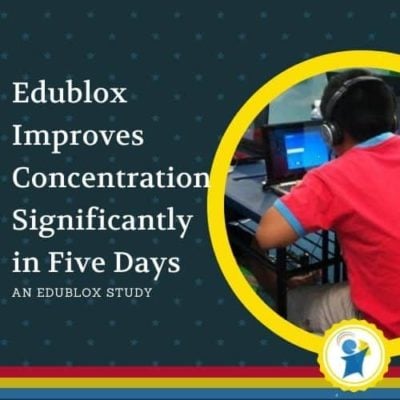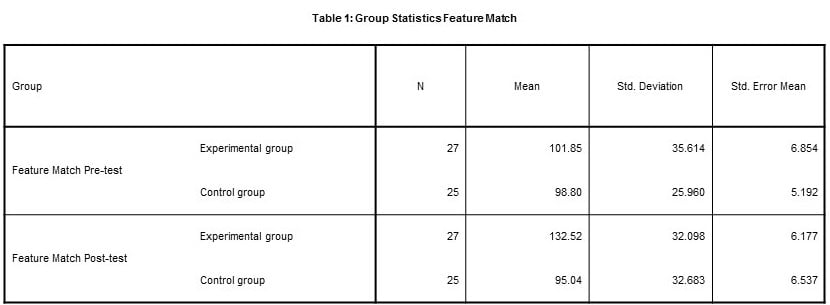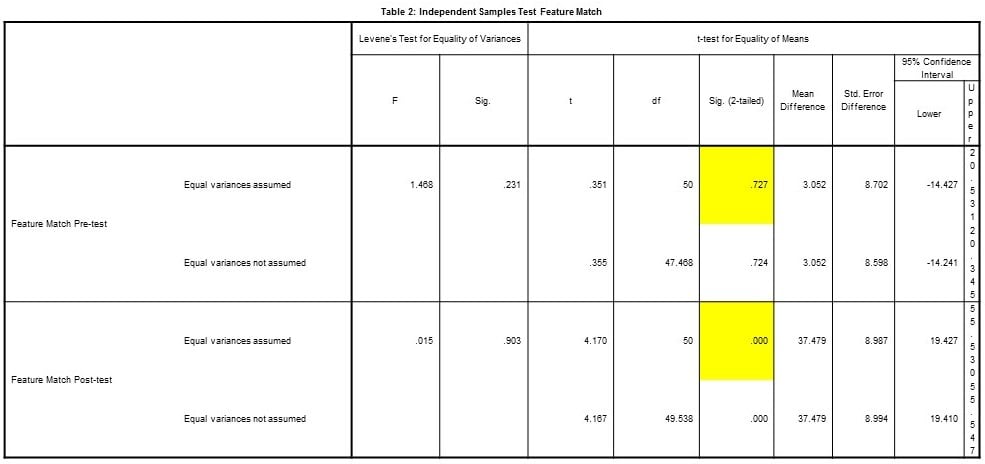
In June 2014, Edublox hosted the FUNtastic Brain Clinic in Singapore. The course was offered in conjunction with a world-class training academy in Asia Pacific.
The Center for Evaluation and Assessment (CEA) at the University of Pretoria analyzed the results of tests done at the Clinic, revealing a significant increase in concentration in just five days.
Clinic presented in Asia
The program was presented to 27 students, ages 10 to 12, to increase cognitive skills and improve reading, spelling, and comprehension. In Singapore, Grade 6 students must write an exam; the marks determine which high school they can apply to. Students who receive higher marks in the exam get accepted at more prestigious high schools in the city. The Clinic was presented to help students prepare for this exam.
The program took place over five days, with seven or eight half-hour daily sessions. Students were pre-tested using Cambridge Brain Sciences’ online tests. Five tests that assess memory, concentration, and general reasoning abilities were selected.
After testing, trained tutors commenced with Edublox lessons. The students completed a post-test, and the results were tabulated for evaluation. A control group comprising 25 students of similar age, gender, and ability also did the pre- and post-tests. This group did not attend the Clinic but continued to go to school.
Evaluating the data
Flordis South Africa (FSA), the distributor of the cognitive enhancing product Keenmind, sponsored the data evaluation. The CEA of the Faculty of Education at the University of Pretoria analyzed the pre- and post-tests results.
Results of the study show an improvement in concentration, or focused attention, in just five days. Focused attention is the ability to selectively concentrate on one aspect of the environment while ignoring other things. This type of concentration is both physically and mentally tiring. People with attention problems such as Attention Deficit Hyperactivity Disorder (ADHD) are known for their inability to filter out distractions and focus on one thing only.
Results of Feature Match, a Cambridge Brain Sciences online test designed to assess concentration by showing the respondent two images that seem similar but require focused attention to identify differences, showed a statistically significant improvement between scores received at pre- and post-testing. But, on top of that, the effect size is large (r = .507), which lies beyond what Professor John Hattie calls the “hinge point,” or the “desired effects point” in education.
Feature Match pre- and post-test comparison of the experimental and control groups
Table 1 below shows the descriptive statistics of the experimental and control groups in terms of the results of the Feature Match test. The experimental group had a mean of 101.85 for the pre-test and 132.52 for the post-test. The control group had a mean of 98.80 for the pre-test and 95.04 for the post-test.

.
Table 2 shows the results for the t-tests of the Feature Match test when comparing the pre- and post-tests between the experimental group and the control group. In the pre-test there was no statistically significant difference (t(50) = .351, p >.05) between the experimental group’s mean (M = 101.85, SE = 6.854) and the control group’s mean (M = 98.80, SE = 5.192).
When comparing the results of the post-test, one sees that the experimental group had a higher mean (M = 132.52, SE = 6.177) when compared to the control group (M =95.04, SE = 6.537). The difference was statistically significant (t(50) = 4.170, p <.05). The results presented a large effect size (r =.507).

.
Alan Yip, the academy’s founder, said he is heartened to note that the FUNtastic Brain Clinic significantly improved the student’s concentration in five days. “Concentration is fundamental to developing learning skills,” said Yip. “I have noticed, over the years, that students have not achieved their optimal performance due to the increased distractions in the external environment. Hence, helping students to improve their concentration on a sustainable basis remains a core objective of our programs.”.
.

